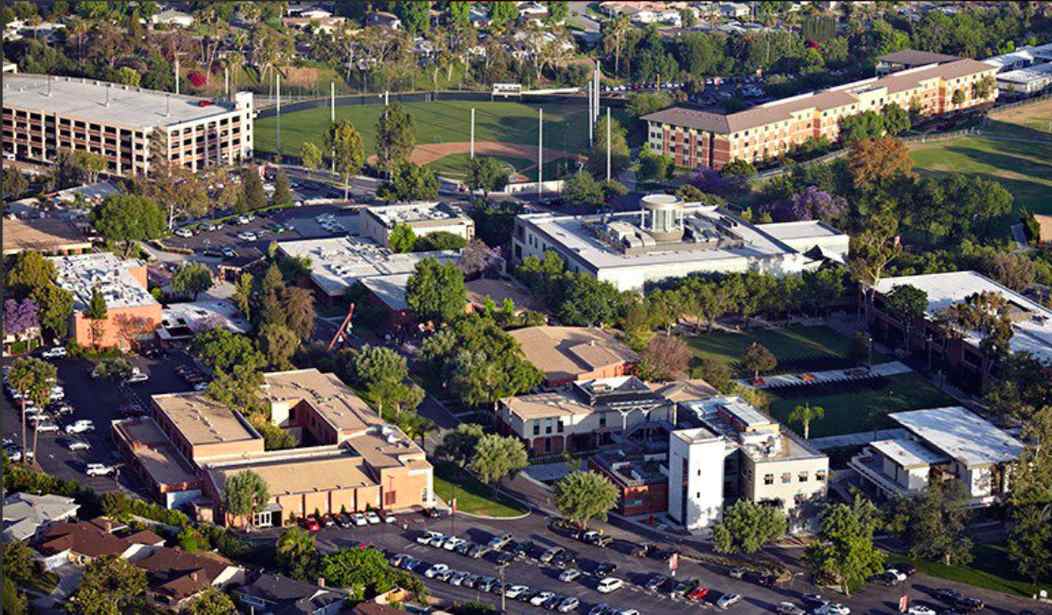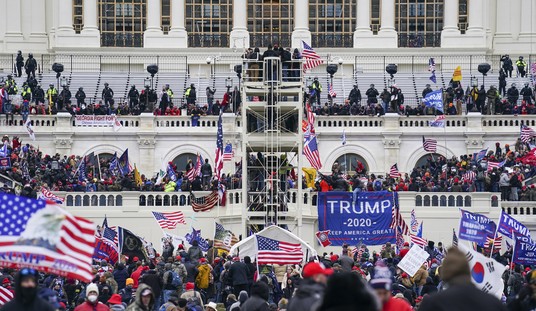A California law which would have forced Christian colleges and universities to adopt LGBT anti-discrimination policies (or lose state funding) and to publicize their exemption status faced strong pushback from religious institutions of higher education. Even though the law has been amended to be less harsh on Christian colleges, a First Amendment lawyer said it still violates the institutions’ right to religious liberty.
Democratic state Senator Ricardo Lara “wanted to put religious institutions on a blacklist, prevent them from receiving funds unless those institutions believed what the government wants them to believe. Instead, they’ll simply put them on a watch list,” Jeremy Dys, senior counsel for First Liberty Institute, told PJ Media. “The same danger lurks around the corner even when they’re simply on this new government watch list.”
The law, S.B. 1146, aimed to prohibit private and religious colleges and universities in California from “discriminating” against LGBT students, faculty, or staff members, even if LGBT lifestyles run contrary to that institution’s religious beliefs. It originally threatened to remove state-funded scholarships offered through the Cal Grant program if such colleges refused to adopt new non-discrimination policies.
California employment lawyer Michael Peabody summarized the bill in this way:
First, SB 1146 will require religious colleges and universities to adopt policies of non-discrimination on the basis of sexual orientation in order for students to receive state-funded scholarships under the Cal Grant program. Secondly, SB 1146 will require these institutions to give notice if they have requested an exemption to Title IX. Thirdly, SB 1146 will permit lawsuits against institutions that are perceived to discriminate on the basis of sexual orientation regardless of whether they accept the Cal-Grant scholarships. The bill will not apply to programs designed for students who want to become members of the clergy or other specifically religious careers.
Sen. Lara, the bill’s sponsor, announced on Wednesday that he would remove the provision forcing religious schools to adopt anti-discrimination policies or lose Cal Grant funding. After S.B. 1146 was introduced, six universities formed a new committee called the Association of Faith-Based Institutions, and contributed $350,000 to fight the bill. That money translated into mailers saying the bill violates religious freedom and urging voters to contact their representatives.
After Lara’s announcement, the universities released a letter: “Pending review of this new language, we are pleased to change our position on this legislation from ‘oppose unless amended’ to ‘support.'”
In its own version of the letter, Biola University declared that it was grateful to the senator for changing his tune. Regarding the two other effects of the bill, the letter added, “Biola has long held to the importance of transparency in explaining their policies and the reasons for them.”
Nevertheless, this requirement is still troubling. Title IX of the Education Amendments of 1972 forbids discrimination “under any education program or activity receiving federal financial assistance.” Some religious colleges are exempt from this restriction, but requiring them to publicly announce this exemption will likely open them up to discrimination lawsuits.
Next Page: Why the publicity requirement is still a threat to religious freedom.
As Nathan Busenitz, assistant professor of theology at The Master’s Seminary, explained, “Because the Bible identifies homosexuality as a sin, it is not difficult to see how Bible-teaching colleges and universities will be accused of discrimination under the new law.”
The bill requires any institution applying for an exemption to Title IX to publicly notify their students and staff of the exemption. According to Peabody, these public notices can be used as evidence in the event of a lawsuit.
“Students can sue for … an injunction if they think they are being discriminated against by a religious college or university,” the employment lawyer explained. “If they happen to sue an institution that is disclosing its Title IX exemption, the fact that institutions have exercised a Federal right to an exemption could be used as evidence against them in state court.”
This is why the bill has not yet been amended to fully protect religious freedom, Dys argued. He also warned that Senator Lara would not fully back down. Indeed, the senator told the Los Angeles Times that “he will pursue other legislation next year, possibly including the provision dropped Wednesday.” This is, at best, a temporary reprieve for religious institutions.
“The goal for me has always been to shed the light on the appalling and unacceptable discrimination against LGBT students at these private religious institutions throughout California,” Lara told the Times. He seems committed to restricting the ability of Christian colleges to operate on the basis of their belief that homosexuality and transgenderism are wrong.
“When the government specifically targets religious institutions and says that they should be on a government blacklist, denied funding and participation in the public square, the First Amendment is damaged,” Dys declared.
The First Amendment lawyer admitted that “it’s slightly less damaged … under a watch list,” but only slightly.
Dys quoted a passage written by Supreme Court Justice Anthony Kennedy on the importance of religious freedom in higher education:
The First Amendment ensures that religious organizations and persons are given proper protection as they seek to teach the principles that are so fulfilling and so central to their lives and faiths, and to their own deep aspirations to continue the family structure they have long revered.
Perhaps ironically, this quote comes from the very Supreme Court decision which legalized gay marriage, Obergefell v. Hodges. Dys explained that all nine justices agreed on this sentence, and it sets forth a basic protection which S.B. 1146 would deny, even as amended Wednesday.
“Government should not be targeting and blacklisting religious institutions,” Dys declared. “I take Justice Kennedy at his word, and I think Senator Lara should, too.”
“We do better as a country when we ensure more freedom, not less,” he continued. “Senator Lara was insistent upon less freedom for religious institutions.” Dys argued that such colleges and universities should be able to run their organizations according to their own values, “without government interference at all. That’s the guarantee of the First Amendment.”
Dys warned that this bill “is one of many threats across the country at the doorstep of religious liberty,” and encouraged “lawmakers across the country” to “do everything that they can to live up to the words of Justice Kennedy.”








Join the conversation as a VIP Member